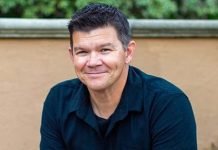Rabbi Marc Rubenstein
Special to Valley News
Yankel, a traditional Jew, kisses his family in the shtetl goodbye as he sets out to make his fortune in the bright new world – America. A year later, his mother comes to be with him in New York. She takes one look at him in disbelief, “Yankele, what happened to your beard and pay’as?”
“Mama,” her devoted son replied, “This is America. I have to fit in to be successful. And, by the way, call me Jack.”
“Oy, but kosher, you still eat kosher, don’t you?” she asked.
“Mama, I mix with all kinds of people these days, my clients and associates. I can’t keep kosher in my circles,” he said.
The mother sighed, “But at least the holy Sabbath, you still observe Shabbas?”
“Mama, Saturday is the biggest shopping day of the week. I would lose my business in a minute if I didn’t work on Saturday,” he said.
“Yankele, tell me, are you still circumcised?!” she asked.
This joke speaks to a profound issue we continue to tackle as American Jews: How is who we are connected to what we do, how we behave? One used to be able to say: Jews do this and don’t do that. Such clear-cut delineations no longer exist. Many individuals are concerned about the integrity of their Jewish actions. To be called a Jew, people want to know what is expected of them, how to behave, how to observe to be “truly” Jewish. Can I do this? Should I do that? What is the right way?
In his book, “Dancing with God,” Rabbi Wayne Dosick said that “there has been a dramatic awakening to the knowledge that the universe is so much more than we can see, feel, hear or experience at this moment in time. The once comfortable world of Rabbinic Judaism is no longer enough for most of us. Its insistence on the primacy of the law no longer speaks to our spiritually questing hearts and souls.”
Mitzvot, which guide our Jewish lives, might be considered the heart of Judaism, epitomized by our external actions as they are lived in the day to day. On the other hand, we discover something very different when we encounter the soul of Judaism. Halacha, Jewish law and practice, developed as a way to help us direct our heart toward our soul.
There are tensions, however, between the heart and soul of Judaism, which are constantly bubbling under and above the surface. Each succeeding generation inherits a complex balancing act between: the heart of tradition and the soul of innovation, status quo and change, stability and evolution.
Where is the proper balance for those seeking a genuine expression of a meaningful Judaism in our life? Is our only choice strict adherence to an ancient recipe or throwing the recipe away altogether as illustrated by Yankele’s story? Mustn’t there be more than either-or? I believe that grappling with this question points the way toward a deeply spiritual search for the very soul of Judaism: A journey that offers opportunities for meaningful discovery, chances to engage in thoughtful study and the serious contemplation of choices.
“Ma Tovu Ohaleicha Ya’acov,” are familiar words from our liturgy, taken from the Torah: “How beautiful are your tents O Jacob, Your dwelling places O Israel.” The heart of Judaism, with its emphasis on behavior, is a place of structures and boundaries. To embrace the soul of Judaism, I believe we must cast wide our Jewish tent to include a broad mix of individuals who identify with the Jewish people. What are these metaphoric tent pegs to which we can all agree, which keep Judaism rooted in tradition and without which the entire tent will collapse or blow away? First, let us consider the tent itself.
In Judaism, we affirm the existence of God with the Shema, without requiring a specific belief in God. To be a Jew, one need not interact with or acknowledge the tent, but the tent’s existence, which forms the context of our lives, is not even a question. However, what we do within the tent of Judaism can most fully emerge out of our sacred, covenantal relationship with the divine spirit hovering over us.
The foundation upon which our Jewish communal canopy is built is just as critical as the tent itself. The basis for Jewish life is a commanding sense of community.
Let me suggest now my candidates for the core tent pegs of our Jewish Tent, which reflect Judaism’s eternal soul.
Jewish Celebrations
Shabbat and seasonal observances serve as important anchors in our lives and offer us a way of structuring our time in a uniquely Jewish manner. These holidays punctuate our days and weeks with meaning and sanctity.
Ethical Mitzvot
Tzedakah/Justice/Compassion/Helping Poor, disadvantaged and Stranger, Tikkun Olam/Repairing the World. Being God’s partner in the ongoing creation of the world is central to the Jewish understanding of our role in life. Remembering our own experiences as strangers and in slavery, we recognize our power to transform our world by working for the messianic redemption–the establishment of a society based on truth and justice, compassion and integrity; a world at peace. Jews are in the forefront of the work to save the people of Darfur; organizing recent campaigns against torture by our military; and supporting hotel workers rights.
Jewish Time
How we celebrate the seasons of our personal lives is significant, too. As we mark our milestones within a Jewish context, we discover new avenues to filling our days with the joy of living.
Torah
Judaism understands the revelation of Torah to be an ongoing process that we can encounter regularly through our study of all the important texts of our tradition. By engaging our sacred texts as individuals, families and community, we come to understand the tremendous power of our people’s accumulated wisdom.
Pikuach Nefesh/the value of life
Saving one life is tantamount to saving the entire world according to the Mishnah. Everything we do as Jews should advance the quality of life and never diminish it – our own and others.
Kedushah/Holiness
We can release the spark of Kedushah or holiness in ourselves and everything we do by creating a mindfulness around us. When we eat, as we go about our daily lives, blessings, prayers and meditations aid us in living with focused attention.
Land of Israel
After 2,000 years, the establishment of a Jewish state in Israel has transformed Judaism. While Israeli and Diaspora Jewry are independent and vital centers of Jewish creativity, we recognize our interdependence with one another. Especially now.
We stake our claim for the soul of Judaism when we study, choose and commit on a personal level. Each Jew must actively articulate their understanding of these fundamental “tent pegs.” Rabbi Rami Shapiro once said, “Serious Jews come in all stripes and flavors. Those that aren’t serious come in only one flavor: Bland!”
So let us work together by strengthening the tent pegs now to insure that there will be a sheltering, indeed, vibrant tent for our children and grandchildren. Let those who shall come after us continue to repeat these ancient words: “Ma tovu ohaleicha Ya’acov, mishkenoteicha Yisrael; How beautiful are your tents O Jacob, your dwelling places O Israel.”
Ken y’hi ratzon, O God, please let it be so.
Congregation B’nai Chaim is located at 29500 Via Princesa in Murrieta. For more information, visit https://www.bnaichaim.com or find them on Facebook.









